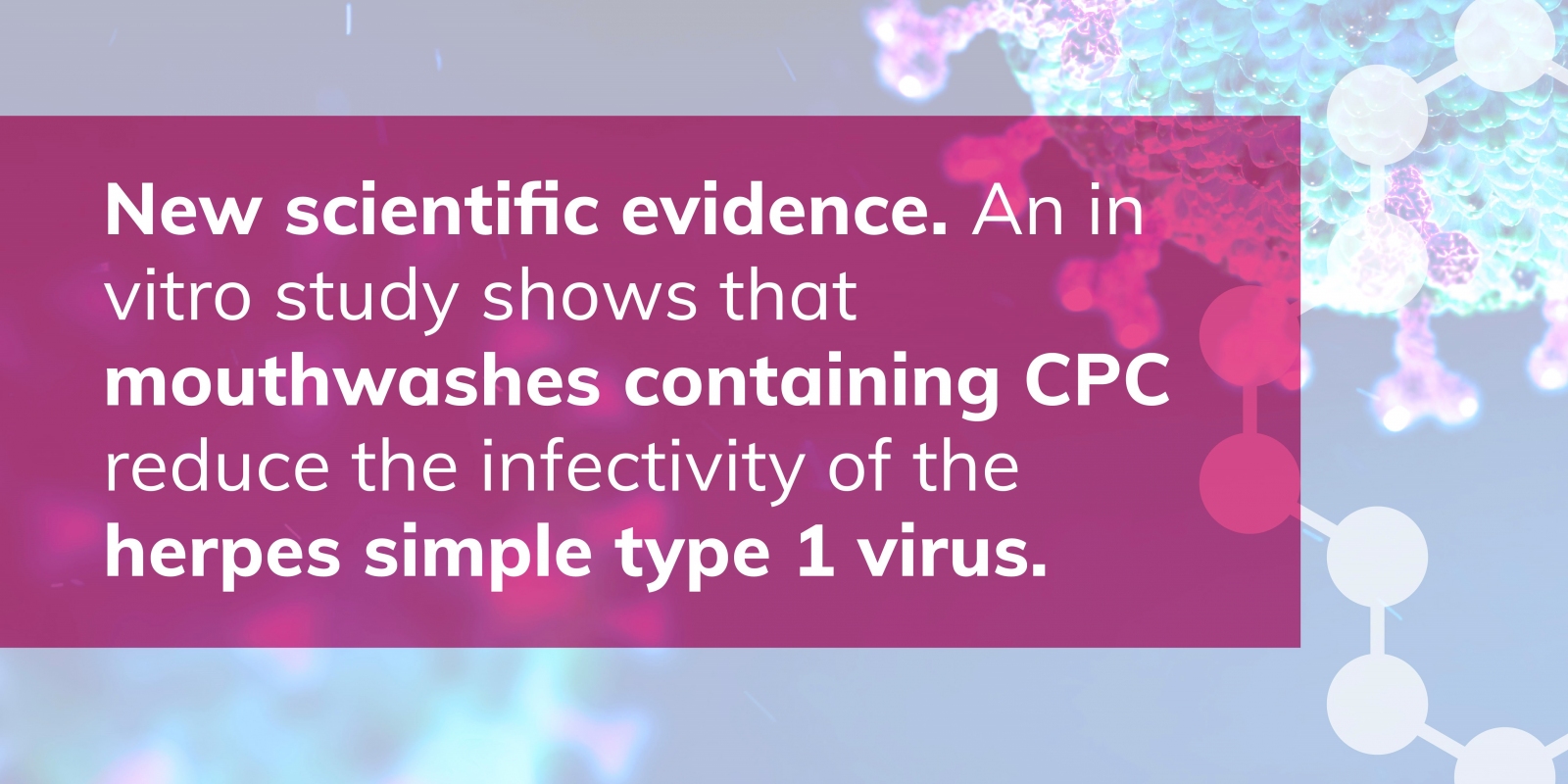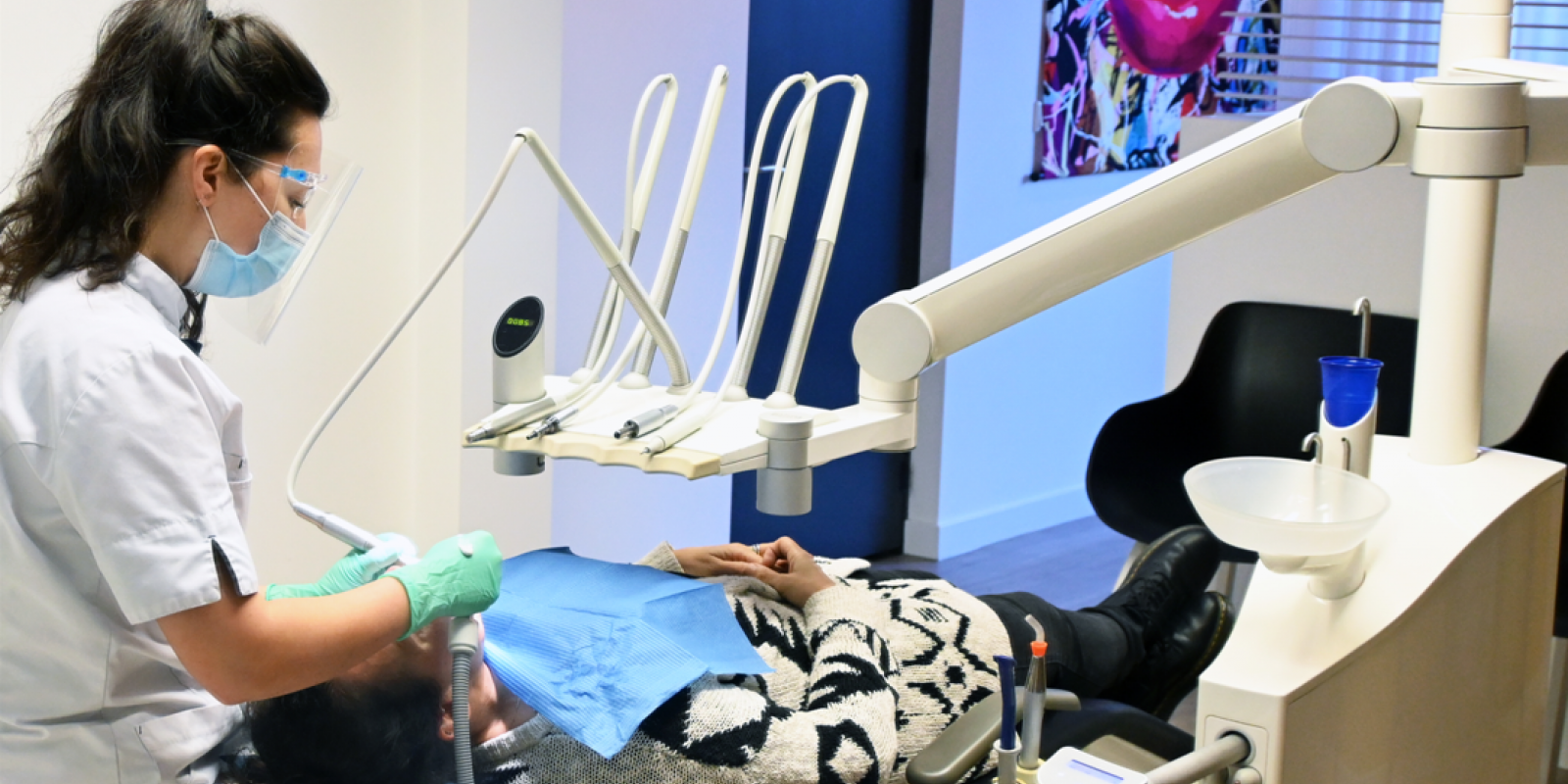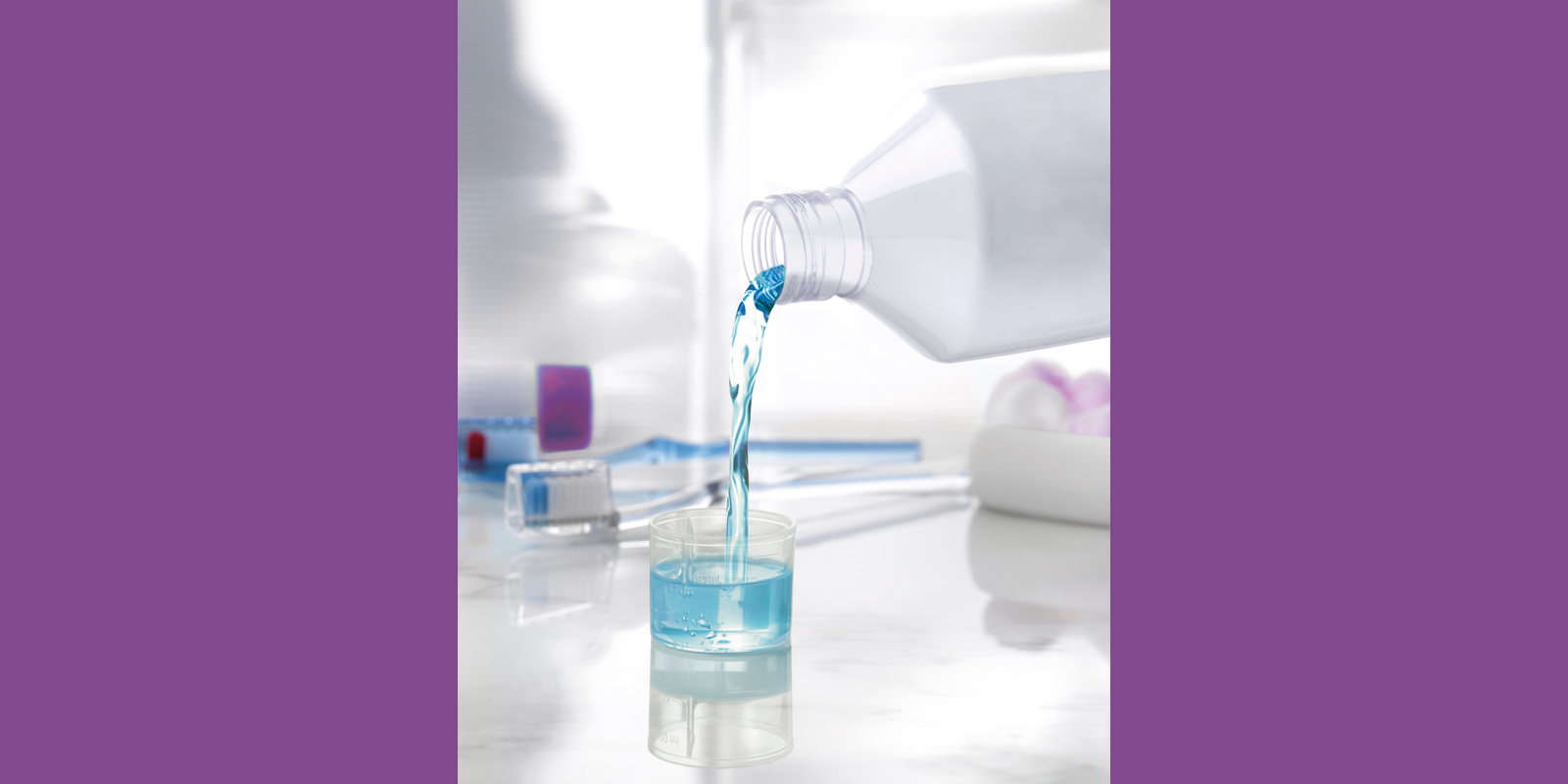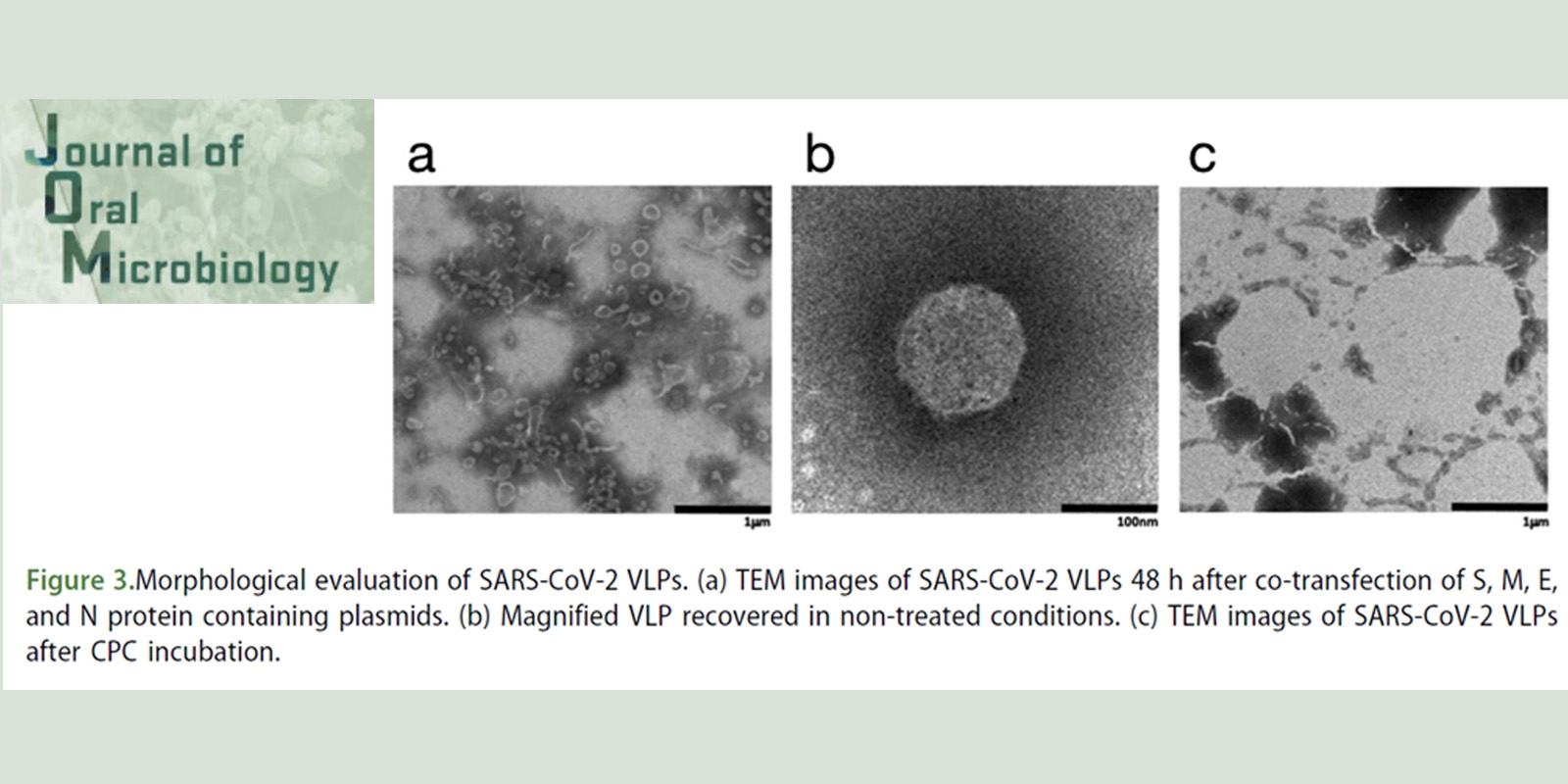DENTAID Press room
An in vitro study shows that mouthwashes containing CPC reduce the infectivity of the herpes simple type 1 virus
09 Oct 2023

- A study conducted by the IrsiCaixa AIDS Research Institute and the Dentaid Research Center confirms the antiseptic and antiviral efficacy of cetylpyridinium chloride (CPC)
- Using mouthwashes containing CPC could be a safe, easy and cost-effective additional measure to limit the infectivity and transmission capacity of certain viruses
- Herpes simplex type 1 virus (HSV-1) affects 67% of the world's population under 50 years of age and is the cause of cold sores, a highly contagious infection
Barcelona, October 9th 2023. An in vitro study carried out by the IrsiCaixa AIDS Research Institute and the Dentaid Research Center has concluded that the use of mouthwashes containing cetylpyridinium chloride (CPC) can reduce, in cell cultures, herpes simplex type 1 virus (HSV-1) infection. CPC therefore plays a significant role as an antiviral, in addition to being effective as an oral antiseptic. The study[i], published in the scientific journal Viruses, reaffirms the ability of CPC to reduce up to 100 times the infectivity of certain viruses, given that the compound had already shown its effectiveness against viruses such as influenza or SARS-CoV-2 in previous [ii] in vitro and in vivo studies.
The oral cavity is particularly susceptible to viral infections, since it is the main gateway for numerous pathogens into our body. "The in vitro experiments carried out in this study suggest that mouthwashes containing CPC could be effective at fighting viruses that cause oral infections, such as the herpes simplex virus (HSV-1)," highlights Manuel Bañó, a biochemical researcher at the Dentaid Research Center.
For this study, the research team added mouthwash containing CPC to a herpes virus culture. Two minutes later – the time equivalent to the duration of mouthrinsing –CPC was removed from the viral culture and these viruses were brought into contact with a cell culture. “We tried to simulate a mouthrinse situation, but in the laboratory. We observed that the virus having come in contact with CPC loses its ability to infect cultured cells. However, if we do the same experiment, but without CPC, the virus continues infecting the cells,” explains Ester Ballana-Guix, the principal investigator from IrsiCaixa.
Specifically, the trial was conducted with two mouthwash solutions, one for daily care with a concentration of 0.07% CPC, and another for temporary use in the adjunctive treatment of periodontal and peri-implant diseases, with a concentration of 0.05% CPC. It was confirmed in both instances that this component is capable of reducing the infectivity of the herpes virus, similar to what was shown in the case of the COVID-19 virus. "Although clinical trials are necessary to evaluate the protective role of CPC in people, we know that limiting the viral load in the oral cavity is important, not only to control reinfection and prevent complications in cases of severe infection, but also to reduce the oral transmission of viruses,” says Ballana.
For all these reasons, rinsing with mouthwashes that contain this component could be an easy, affordable, and safe additional resource to reduce the infectivity of highly prevalent viruses such as herpes.
This study was carried out in the microbiology area of the Dentaid Research Center, a global benchmark for oral health research aimed at generating scientific knowledge and its application in the development of innovative products. The Dentaid Research Center regularly conducts research and publishes studies that allow us to delve deeper into the improvement of oral health and the relationship that oral health has with general health.
Herpes simple virus type 1
According to data from the World Health Organization (WHO)[iii] it is estimated that 3.7 billion people under the age of 50 worldwide have HSV-1 infection. It is a virus that spreads mainly through oral contact and causes infections such as cold sores or fever blisters in the mouth and adjacent areas. Most people infected with it either have no symptoms or experience mild symptoms, which means they can transmit the virus to others without being aware of it.
Read the study: https://www.mdpi.com/1999-4915/15/7/1433
Bibliography
[i] Riveira-Muñoz, E.; Garcia-Vidal, E.; Bañó-Polo, M.; León, R.; Blanc, V.; Clotet, B.; Ballana, E. Cetylpyridinium Chloride-Containing Mouthwashes Show Virucidal Activity against Herpes Simplex Virus Type 1. Viruses 2023
[ii] Alzahrani, M.M.; Bamashmous, S.; Alkharobi, H.; Alghamdi, A.; Alharbi, R.H.; Hassan, A.M.; Darwish, M.; Bukhari, A.; Mahmoud, A.B.; Alfaleh, M.A.; et al. Mouth Rinses Efficacy on Salivary SARS-CoV-2 Viral Load: A Randomized Clinical Trial. J. Med. Virol. 2023
Muñoz-Basagoiti J, Perez-Zsolt D, León R, et al. Mouthwashes with CPC Reduce the Infectivity of SARS-CoV-2 Variants In Vitro. Journal of Dental Research. 2021.
Popkin, D.L.; Zilka, S.; Dimaano, M.; Fujioka, H.; Rackley, C.; Salata, R.; Griffith, A.; Mukherjee, P.K.; Ghannoum, M.A.; Esper, F. Cetylpyridinium Chloride (CPC) Exhibits Potent, Rapid Activity Against Influenza Viruses In Vitro and In Vivo. Pathog. Immun. 2017
[iii] World Health Organization. (March 2023). Herpes simplex virus.
RELATED POSTS

29 Jun 2023
Julia Akkerman: "Raising awareness and motivating people about their oral health depends on professionals"

22 Jun 2022
CPC in mouthwashes has been shown in humans to rupture the membrane of SARS-CoV-2 and to reduce the amount of active virus in saliva

01 Feb 2022